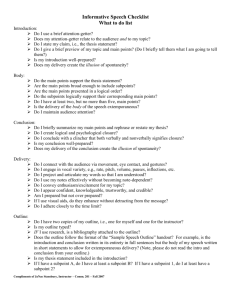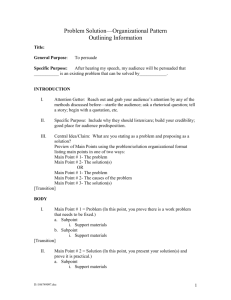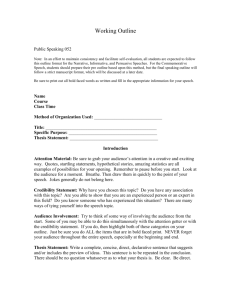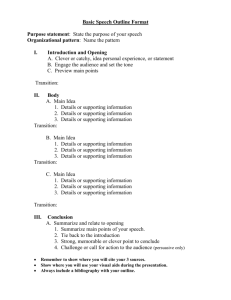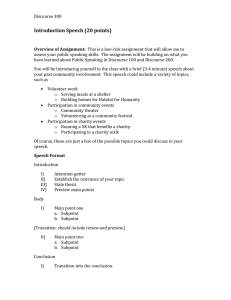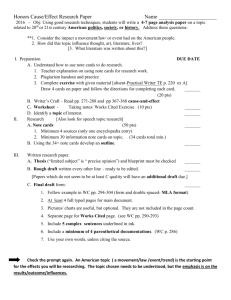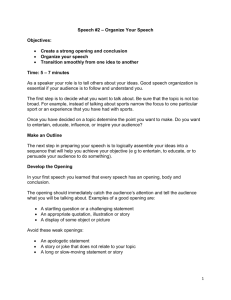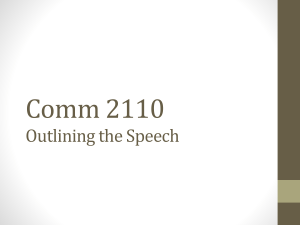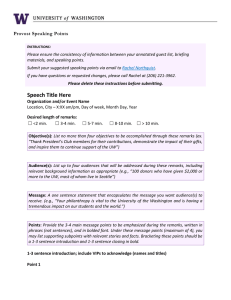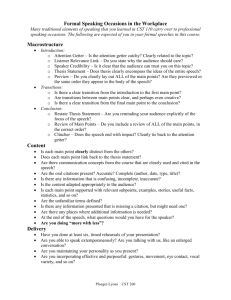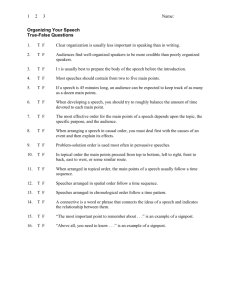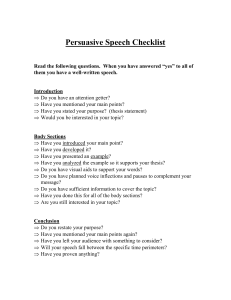Speech Organization and Outlining Importance: • makes you more
advertisement
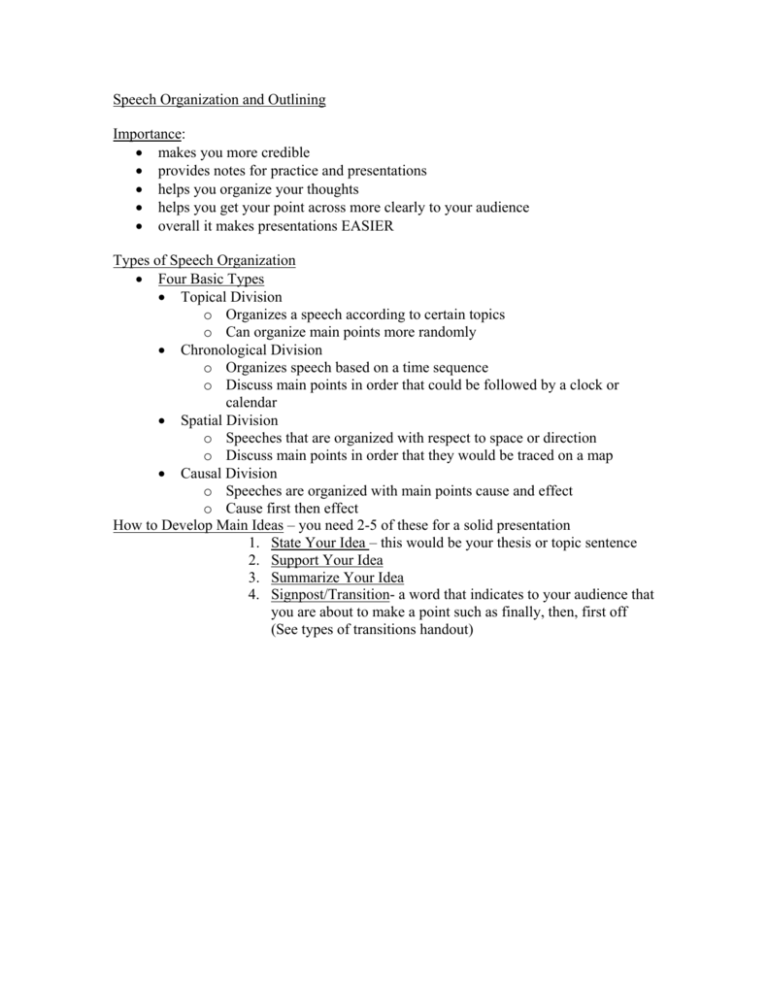
Speech Organization and Outlining Importance: makes you more credible provides notes for practice and presentations helps you organize your thoughts helps you get your point across more clearly to your audience overall it makes presentations EASIER Types of Speech Organization Four Basic Types Topical Division o Organizes a speech according to certain topics o Can organize main points more randomly Chronological Division o Organizes speech based on a time sequence o Discuss main points in order that could be followed by a clock or calendar Spatial Division o Speeches that are organized with respect to space or direction o Discuss main points in order that they would be traced on a map Causal Division o Speeches are organized with main points cause and effect o Cause first then effect How to Develop Main Ideas – you need 2-5 of these for a solid presentation 1. State Your Idea – this would be your thesis or topic sentence 2. Support Your Idea 3. Summarize Your Idea 4. Signpost/Transition- a word that indicates to your audience that you are about to make a point such as finally, then, first off (See types of transitions handout) Basic Outline Best way to get you organized quickly Tip: take note cards, write each of your main points on one note card and move them around, see where they fit best. I. Introduction (Do not start with ‘Today I’m going to talk about’) A. Opener or attention getter B. Significance of topic C. Relate your topic to your audience D. Thesis II. Body (Should contain 2-5 main points) A. Main Point 1 1. Subpoint 1 (you should have a minimum of 2 subpoints) a) Supporting material (enough to make your point) b) Supporting material 2. Subpoint 2 a) Supporting material b) Supporting material ****And so on*** your remaining body should look just like this. 3 main points are ideal but not always possible. III. Conclusion (DO NOT CONCLUDE WITH ‘AND THAT’S ALL I’VE GOT’) A. Summarize your topic and what your audience has learned B. Review your main points C. Return to attention catch for you exit
